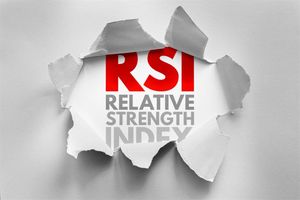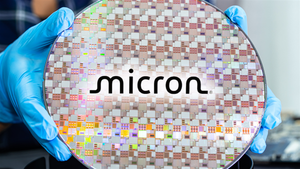Financial News
Denali Therapeutics Announces Initiation of BLA Filing for Accelerated Approval of Tividenofusp Alfa for the Treatment of Hunter Syndrome (MPS II) and Positive Ongoing Interactions with FDA on DNL126 Through START Program
- Rolling submission of BLA initiated for tividenofusp alfa; preparations ongoing for potential U.S. commercial launch in late 2025 or early 2026
- Alignment through recent interactions with CDER on path to accelerated approval and conversion to full approval for tividenofusp alfa
- Productive collaboration continues under START for an accelerated development and approval path for DNL126
SOUTH SAN FRANCISCO, Calif., April 02, 2025 (GLOBE NEWSWIRE) -- Denali Therapeutics Inc. (NASDAQ: DNLI), today announced that the company’s initiation of a rolling submission of a biologics license application (BLA) for accelerated approval of tividenofusp alfa for the treatment of Hunter syndrome (MPS II) has been received by the Center for Drug Evaluation and Research (CDER) of the U.S. Food and Drug Administration (FDA). Denali continues to have regular, collaborative, and productive engagement with CDER and is aligned with CDER on the content of the BLA data package, including the use of cerebrospinal fluid heparan sulfate (CSF HS) as a surrogate endpoint to support an accelerated approval, as well as the full approval conversion path. Denali expects to complete the BLA submission in the first half of May 2025 and continues to prepare for a potential commercial launch in the U.S. in late 2025 or early 2026.
“We are grateful to the FDA for their ongoing support of our BLA filing and continued dedication to advance new medicines,” said Carole Ho, M.D., Chief Medical Officer of Denali. “This regulatory milestone brings us closer to our goal of delivering a new treatment option to the Hunter syndrome community as we continue to listen, learn, and seek their advice in bringing tividenofusp alfa to patients. Our progress has broader positive implications supporting the expansion of our Enzyme TransportVehicle franchise of next-generation enzyme replacement therapies to treat the brain and body. In this context, we appreciate the ongoing and productive collaboration with CDER through the START program as we align on an accelerated development and approval path for DNL126 for the potential treatment of Sanfilippo syndrome.”
About Hunter Syndrome (MPS II)
Hunter syndrome (MPS II) is a rare genetic disease that affects over 2,000 individuals worldwide, primarily males, and leads to physical, cognitive, and behavioral symptoms. Hunter syndrome is caused by mutations in the iduronate-2-sulfatase (IDS) gene, which leads to a deficiency of the IDS enzyme. Symptoms often begin emerging around age two and include physical complications, including organ dysfunction, joint stiffness, hearing loss and impaired growth, and neurocognitive symptoms with impaired development. The disease is characterized by a buildup of glycosaminoglycans (GAGs) in lysosomes — the part of the cell that breaks down materials including GAGs. The current standard of care, enzyme replacement therapy, partially treats physical symptoms but does not cross the blood-brain barrier, and as a result, cognitive and behavioral symptoms experienced by the majority of patients with Hunter syndrome are not addressed. Therapies that address the range of cognitive, behavioral, and physical manifestations of the disease are recognized as an unmet need for this patient community.1
About Tividenofusp Alfa
Tividenofusp alfa (or DNL310) is composed of the iduronate 2-sulfatase (IDS) enzyme fused to Denali’s proprietary Enzyme TransportVehicle™ (ETV), uniquely designed to deliver IDS into the brain and the body, with the goal of addressing behavioral, cognitive, and physical symptoms of Hunter syndrome (MPS II). The U.S. Food and Drug Administration has granted Fast Track and Breakthrough Therapy designations to tividenofusp alfa for development in the treatment of Hunter syndrome (MPS II). The European Medicines Agency has granted Priority Medicines designation to tividenofusp alfa.
The Phase 2/3 COMPASS study is enrolling participants with MPS II in North America, South America, and Europe to support global approval. Participants are randomized 2:1 to receive either tividenofusp alfa or idursulfase, respectively. More information about the COMPASS study can be found here.
Tividenofusp alfa is an investigational therapeutic and has not been approved for use by any Health Authority.
About Sanfilippo Syndrome Type A (MPS IIIA)
MPS III, also called Sanfilippo syndrome, is a rare, genetic lysosomal storage disease that causes neurodegeneration. There are four main types of MPS III, depending on the enzyme affected. Type A is caused by genetic defects that result in reduction in the activity of N-sulfoglucosamine sulfohydrolase (SGSH), an enzyme responsible for degrading heparan sulfate in the lysosome. There are no approved treatments for MPS IIIA.
About DNL126 (ETV:SGSH)
DNL126 (ETV:SGSH) is an intravenously administered, Enzyme TransportVehicle™ (ETV)-enabled SGSH replacement therapy designed to cross the BBB via receptor-mediated transcytosis into the brain and to enable broad delivery of SGSH into cells and tissues throughout the body with the goal of addressing the behavioral, cognitive, and physical manifestations of MPS IIIA.
DNL126 is an investigational therapeutic and has not been approved for use by any Health Authority.
About the Phase 1/2 study of DNL126
Denali is conducting a multicenter, open-label, Phase 1/2 study to assess the safety, tolerability, pharmacokinetics, pharmacodynamics, and exploratory clinical efficacy of DNL126 in participants with MPS IIIA. The core study period is approximately 6 months and is followed by an open-label extension for approximately 18 months. More information about the Phase 1/2 study can be found here.
About Denali Therapeutics
Denali Therapeutics is a biopharmaceutical company developing a broad portfolio of product candidates engineered to cross the blood-brain barrier for neurodegenerative diseases and lysosomal storage diseases. Denali pursues new treatments by rigorously assessing genetically validated targets, engineering delivery across the blood-brain barrier and guiding development through biomarkers that demonstrate target and pathway engagement. Denali is based in South San Francisco. For additional information, please visit www.denalitherapeutics.com.
Cautionary Note Regarding Forward-Looking Statements
This press release contains forward-looking statements within the meaning of the Private Securities Litigation Reform Act of 1995. Forward-looking statements expressed or implied in this press release include, but are not limited to, statements regarding plans, timelines, and expectations related to Denali's Enzyme TransportVehicle™ (TV) platform and its therapeutic and commercial potential; plans, timelines, and expectations relating to tividenofusp alfa (DNL310), including enrollment in the ongoing global Phase 2/3 COMPASS study, the timing of completion of its BLA submission, the likelihood of accelerated and full approval, and the timing and likelihood of commercial launch; expectations for ongoing communications with the FDA; plans, timelines, and expectations related to DNL126, including enrollment in and timing of the Phase 1/2 study; and statements made by Denali’s Chief Medical Officer. Actual results may differ materially from those expressed or implied by these forward-looking statements due to a variety of risks and uncertainties. These include, but are not limited to: risks arising from adverse economic conditions and their impact on Denali’s business and operations; the possibility of events or changes that could lead to the termination of Denali’s collaboration agreements; challenges associated with Denali’s transition to a late-stage clinical drug development company; the ability of Denali and its collaborators to complete the development and, if approved, the commercialization of product candidates; difficulties in patient enrollment for ongoing and future clinical trials; reliance on third-party manufacturers and suppliers for clinical trial materials; dependence on the successful development of Denali’s blood-brain barrier platform technology and related programs; potential delays or failures in meeting expected clinical trial timelines; the risk that promising preclinical profiles may not be replicated in clinical settings; discrepancies between preclinical, early-stage, or preliminary clinical results and outcomes from later-stage trials; the occurrence of significant adverse events or other undesirable side effects; and the uncertainty surrounding regulatory approvals required for commercialization; Denali’s ability to advance a pipeline of product candidates or develop commercially successful products; developments relating to Denali's competitors and its industry, including competing product candidates and therapies; Denali’s ability to obtain, maintain, or protect intellectual property rights related to its product candidates; implementation of Denali’s strategic plans for its business, product candidates, and blood-brain barrier platform technology; Denali's ability to obtain additional capital to finance its operations, as needed; Denali's ability to accurately forecast future financial results in the current environment; and other risks and uncertainties, including those described in Denali's most recent Annual Report on Form 10-K filed with the Securities and Exchange Commission (SEC) on February 27, 2025 and Denali’s future reports to be filed with the SEC. Denali's product candidates are investigational, and their safety and efficacy profiles have not yet been established. No Denali product candidates have been approved by any health authority for any use. Denali does not undertake any obligation to update or revise any forward-looking statements, to conform these statements to actual results or to make changes in Denali’s expectations, except as required by law.
Reference
- Muenzer, J., et al. Community consensus for Heparan sulfate as a biomarker to support accelerated approval in Neuronopathic Mucopolysaccharidoses. Mol Genet Metab. 2024 Aug;142(4):108535
| Investor Contact Laura Hansen, Ph.D. Vice President, Investor Relations (650) 452-2747 hansen@dnli.com | Media Contact Rich Allan FGS Global (503) 851-0807 rich.allan@fgsglobal.com |

More News
View More



Recent Quotes
View More
Quotes delayed at least 20 minutes.
By accessing this page, you agree to the Privacy Policy and Terms Of Service.



